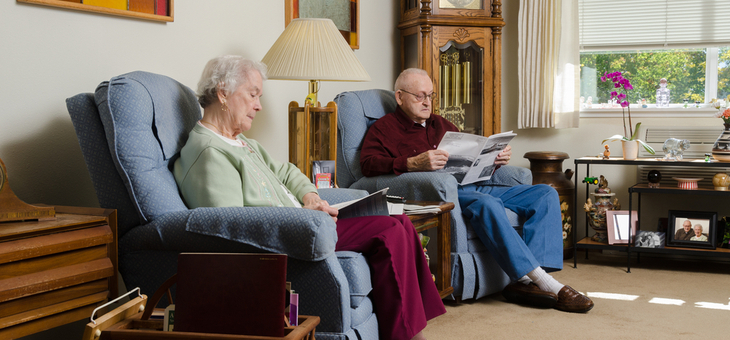The ancient Chinese practice of feng shui may actually play an important role in the happiness and mental wellbeing of older adults.
A University of Texas study has found that older adults who have a living space that matches their personality type are happier, and that the sensation is more pronounced as a person ages.
The researchers took photos of the main living space (typically the living room) of 286 people over the age of 65 and found that certain characteristics were reflected in elements of the room decor.
Read: What you should look out for when buying a house
Professor Karen Fingerman said the study found that “people who had a match between personality and living space reported better wellbeing, and they felt better about their life and had a better mood”.
She explained that the findings from the study could have important applications for helping older adults live happier lives, particularly those who have to be transferred from their homes to long-term aged care facilities.
The researchers found that extraversion was expressed with displaying new items in the room and cheerful decor, which could stem from a desire to make the room appealing to visiting friends and family.
Read: How to fight garden guilt and not be overwhelmed
Conscientiousness was associated with newness and comfort, with the researchers explaining that orderliness and organisation were key components of that personality trait.
The researchers said that openness was evident in the decor for older adults who lived alone, which suggested that people who lived with others may not have as much latitude to express their personalities in the decor choices.
Importantly, though, the study found that when a living space matched the personality and preferences of the person living there, older adults reported enhanced feelings of wellbeing.
Read: Seven biggest mistakes people make when selling a house
While most older adults would prefer to grow old in their own homes, as they age and they start to suffer from restrictions in movement the researchers found that many homes became out of date, uncomfortable, dim and cluttered.
The scientists said that this could be a result of many older adults having less energy to maintain their spaces.
Surprisingly, though, for adults with functional limitations on their movement, clutter was associated with fewer symptoms of depression.
“Clutter may represent an effort to exert control over the environment,” Prof. Fingerman said. “They may also wish to keep items close at hand to compensate for mobility issues.”
Researchers said this study suggests that older adults with functional limitations on movements may benefit from a little help around the house, but cleaning and maintenance should be done in collaboration. What looks like clutter to one person may be an arrangement that makes an older adult more comfortable.
“There is no one ideal way to create a living space,” Prof. Fingerman said. “It has to match the person.”
What personality type are you? Are you an introvert or extravert? How do you think your personality is reflected in your living space? Do you think your living space matches your personality type? Why not share your thoughts in the comments section below?
If you enjoy our content, don’t keep it to yourself. Share our free eNews with your friends and encourage them to sign up.

